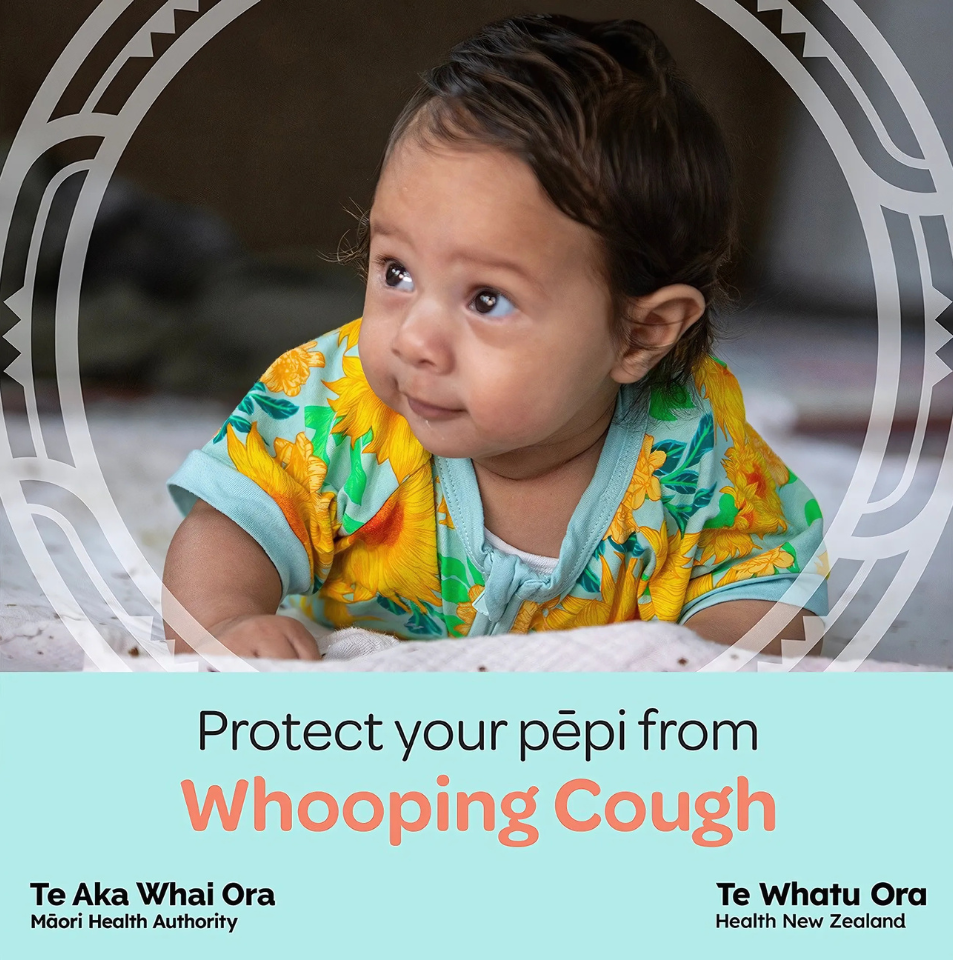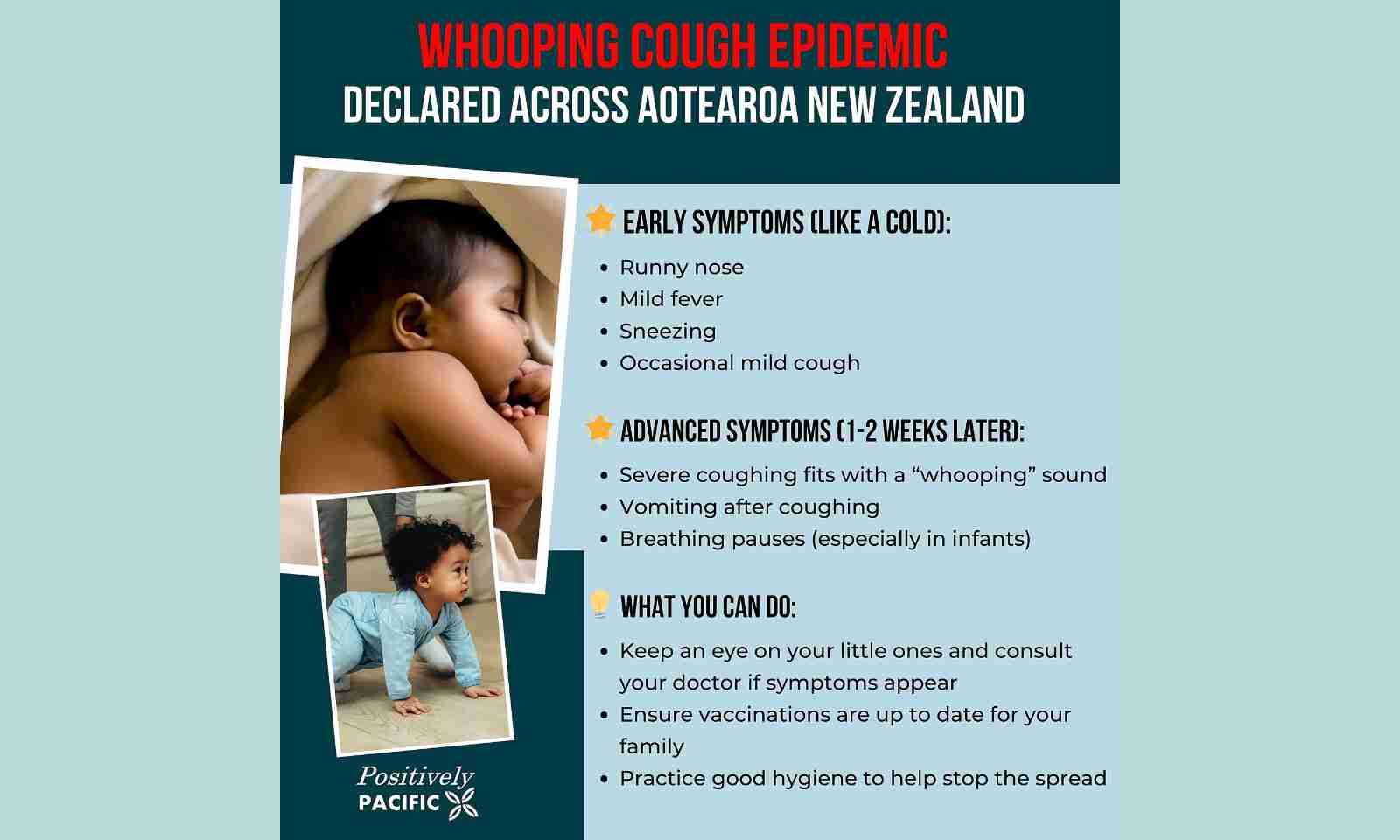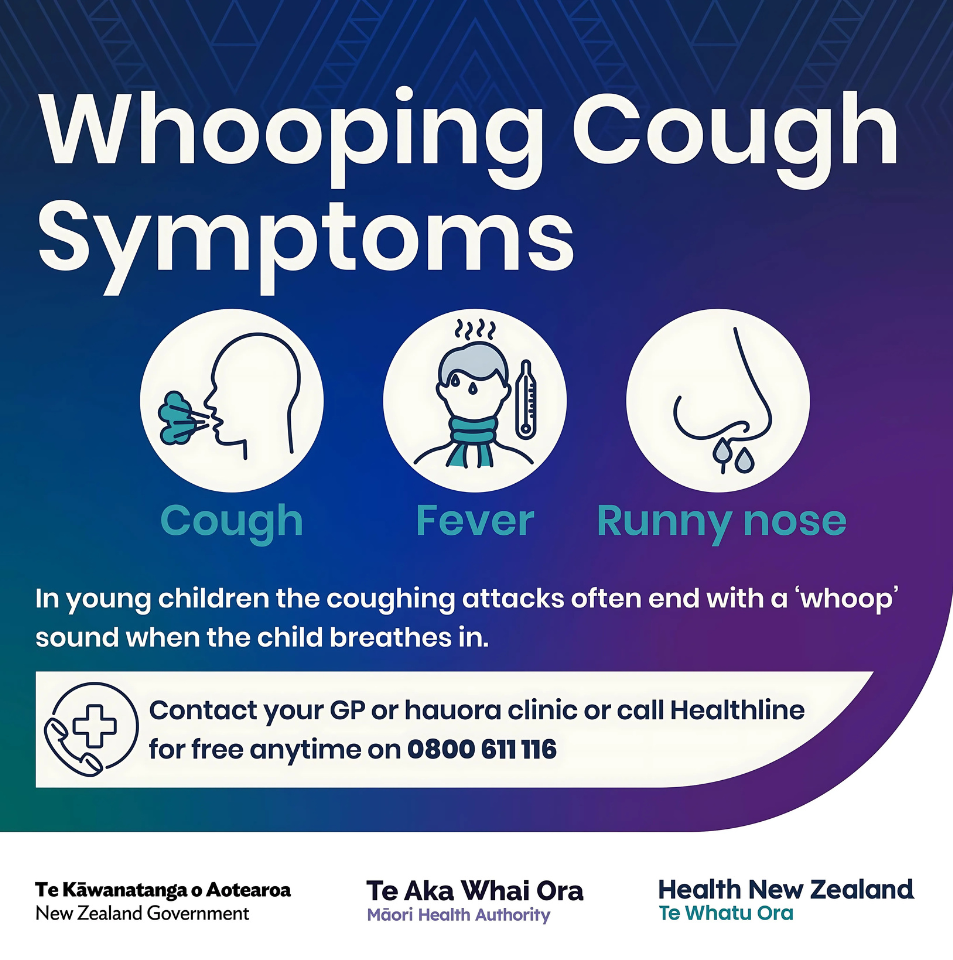

Galumalemana Vai Naseri, CEO of Pasefika Family Health, warns Pacific families about risks from whooping cough epidemic.
Photo/supplied
Pacific children at high risk from whooping cough epidemic
Pacific families urged to vaccinate and avoid crowded spaces as New Zealand battles a whooping cough epidemic threatening vulnerable infants.


Holiday Classics: The sports films that bring families together

Memories over miles: South Aucklanders share their favourite holiday getaways


Ancient DNA shows how Pasifika carried pigs across the ocean

Holiday Classics: The sports films that bring families together

Memories over miles: South Aucklanders share their favourite holiday getaways

Pacific families are urged to act quickly as whooping cough spreads rapidly, putting babies and young children at risk.
Galumalemana Vai Naseri, CEO of Pasefika Family Health in Auckland, issued the warning following the health authorities' official declaration of a whooping cough epidemic.
A coordinated national response has been launched due to the rising number of cases nationwide, reaching levels that meet the threshold for declaring a national epidemic.
Experts warn that Māori and Pacific pēpi (infants) are most at risk.
The latest ESR shows that after spikes in May, June, and July, whooping cough cases have begun to increase steadily since September.
There have been 263 cases in the past four weeks (19 October to 15 November), the highest number recorded in four weeks in 2024.
Dr Nicholas Jones, Director of Public Health, attributes the surge to a global trend.
“Many countries are seeing record levels of pertussis, likely due to reduced infection rates during the Covid-19 pandemic. New Zealand should prepare for similarly high case numbers over the next 12 months,” he said.
The last major whooping cough outbreak in New Zealand occurred in 2017, and officials warn this current epidemic could last just as long.
Dr Susan Jack, National Clinical Director of Protection at Te Whatu Ora Health New Zealand, described the epidemic as “a marathon, not a sprint.”
Highly contagious
Whooping cough, or pertussis, is a highly contagious respiratory infection that threatens babies too young to be immunised.

Around 50 per cent of infants who contract the disease before they are 12 months old require hospitalisation, and 1-2 per cent of those hospitalised do not survive.
Galumalemana said the best way to protect children is to ensure they are vaccinated.
She said that if babies have yet to receive their vaccinations due at six weeks, three months, and five months, their immunisation levels will be low.
There are also booster doses given at ages four and 11.
Galumalemana said Pacific families were especially at risk because of low immunisation rates, living in overcrowded conditions and a higher likelihood of taking children to crowded places and public events such as church and family gatherings.

She urged families to be cautious in crowded areas and ensure that their living environments are healthy. She promoted smoke-free practices and maintaining good hygiene and nutrition.
“If babies are breastfeeding, continue on breastfeeding, making sure that they receive a good diet but most importantly is to make sure that they receive their vaccination,” Galumalemana said.
Free vaccinations
Free vaccinations for children under 18 and antenatal vaccinations for pregnant women are available through regional providers.
Adults can also receive combined pertussis and tetanus boosters, with free doses offered at ages 45 and 65 under certain conditions.
Whooping cough symptoms often begin like a common cold, with a runny nose, sneezing, mild fever, and cough.

Whooping cough symptoms/Health NZ Te Whatu Ora
After about a week, the illness can progress to severe coughing fits that may lead to vomiting, choking, or difficulty breathing. A distinct “whooping” sound is sometimes heard when the patient gasps for air.
Infants are particularly vulnerable, and coughing spells may cause them to stop breathing briefly.
Parents and caregivers should seek immediate medical attention if these symptoms occur. They are also encouraged to ensure their children are up to date with all vaccinations. Even if children have missed some doses, catching up is still possible.
Te Whatu Ora has activated a national response team to support public health services and healthcare providers.
For more information or help booking your vaccination, call the Vaccination Healthline on 0800 28 29 26 (8.30am-5.00pm Monday to Friday) or visit info.health.nz/bookavaccine